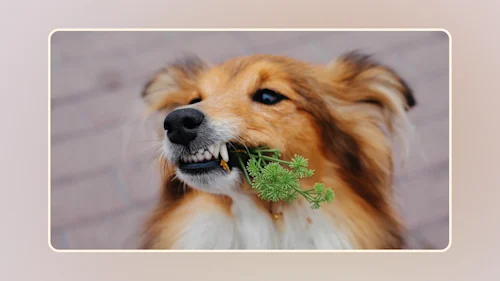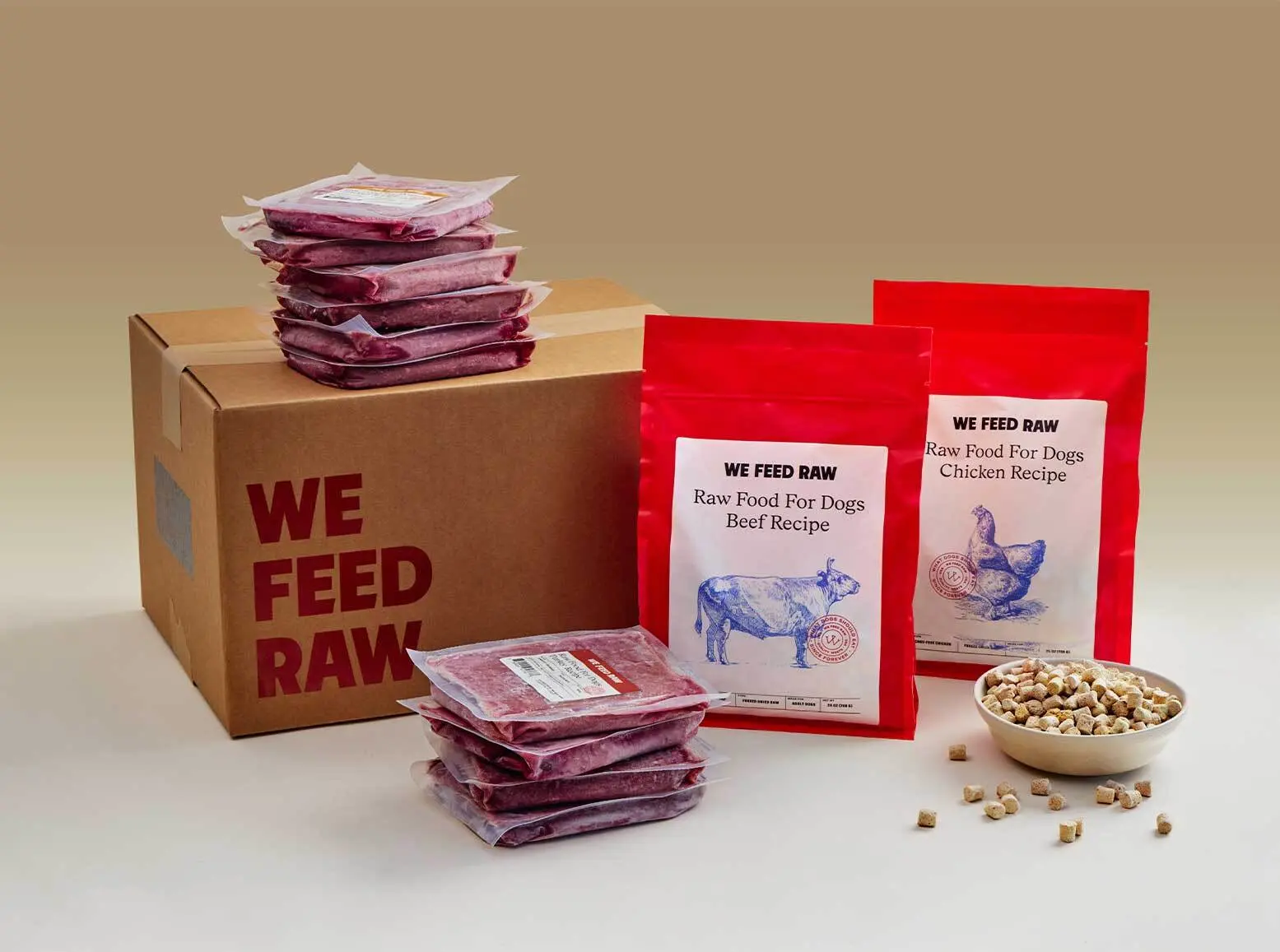
Can Dogs Eat Dill? Surprising Benefits & Safety Tips
Table of Contents
- What Is Dill?
- Can Dogs Eat Dill?
- Health Advantages of Dill for Canines
- Introducing Dill to Your Dog's Diet Safely
- Clarifying Dill Edibility for Dogs
- Special Considerations for Canine Dill Consumption
- The Best Food for Dogs: A Raw Diet
- Frequently Asked Questions (FAQs)
- Support Your Dog’s Health With We Feed Raw
If you enjoy seasoning your own food with dill, you may have wondered: Can dogs eat dill? Dill actually has several great benefits for dogs when fed in moderation. Too much dill can cause digestive upset, however, and dill pickles pose their own set of problems.
Here’s what you need to know about dill for dogs.
What Is Dill?
Dill weed is an herb in the parsley family. Both the feathery green leaves of the dill weed herb and the dill seed spice have long been used in cooking.
Can Dogs Eat Dill?
Yes, dogs can eat dill in limited amounts. While a little bit of dill improves digestion and provides other benefits, too much dill can actually cause digestive problems.
Health Advantages of Dill for Canines
Dill can provide several surprising benefits to dogs from breath freshening to improved digestion to cancer prevention.
Antioxidants and Other Nutrients
Dill contains several antioxidant flavonoids like kaempferol and vicenin which reduce free radicals and act as anti-inflammatories. Dill also contains anethofuran and limonene, which increase cancer-fighting enzymes. Additionally, dill contains vitamins and minerals, including manganese, calcium, potassium, phosphorus, magnesium, copper, iron, vitamin A, and vitamin C.
Digestion
Due to its antispasmodic properties, dill can relieve muscle spasms that cause gas and relieve nausea and cramping. This makes it ideal for dogs who are prone to occasional digestive upset resulting from eating things they shouldn’t.
Breath Freshener
With its antibacterial properties, dill can help freshen bad breath caused by gingivitis or bacteria. While dill shouldn’t replace regular toothbrushing, you can give some to your dog between scrubs to help freshen their breath.
Introducing Dill to Your Dog's Diet Safely
There are two primary ways to feed dill to dogs. You can either sprinkle a little bit of dried or fresh dill over your dog’s food, or you can make a dill tea by adding one teaspoon of crushed dill seeds to eight ounces of hot water and letting it cool before allowing your dog to drink the mixture.
Clarifying Dill Edibility for Dogs
While dill is relatively safe for dogs when fed by itself, dill pickles are another matter entirely.
Can Dogs Eat Dill Pickles?
No, dogs should not eat dill pickles. Although dill and cucumbers aren’t toxic for dogs, the brine used to turn cucumbers into pickles is very high in salt and may contain onion, spices, or other ingredients that can make dogs sick. Therefore, dogs should not eat dill pickles, kosher pickles, hamburger pickles, or any other kind of pickles.
Special Considerations for Canine Dill Consumption
Like anything, some dogs may have negative reactions to dill. The first time you give dill to your dog, feed them a small amount and wait a day or two to see if they have any negative reactions like digestive upset before increasing how much dill you feed to your dog.
The Best Food for Dogs: A Raw Diet
Are you feeding your dog a healthy, species-appropriate diet? If you’re feeding anything other than a raw diet, your answer is likely no. While dogs have developed some ability to digest carbohydrates, they never evolved a need for carbohydrates, making most commercial dog foods inappropriate.
Even though a Chihuahua may look nothing like a wolf, modern dogs and wolves have nearly identical digestive systems, with hinged jaws and sharp teeth for ripping and tearing meat, highly acidic stomachs for killing problematic bacteria that may be found on meat, and short digestive tracts ideal for processing meat and bone.
Omnivores (like humans) have flat molars for grinding plant matter, salivary amylase for breaking down carbohydrates, and long intestines for extracting nutrients from vegetation.
Feeding raw dog food doesn’t have to mean constantly worrying about the proportions of muscle meat, organ meat, bone, and added supplements, though. We Feed Raw does all that for you and delivers pre-portioned complete and balanced frozen raw patties to you. All you need to do is thaw and feed.
Our recipes all meet AAFCO nutritional standards for dogs of all life stages, including the growth of large-breed puppies, so you can start your puppy on our food and not have to worry about switching their diet after they grow up.
Worried about germs? We Feed Raw uses a cold-pressure process to inactivate any potential pathogens, making our food safe.
The benefits of switching to We Feed Raw include cleaner teeth, better weight control, improved digestion, a stronger immune system, more mealtime excitement, smaller stools, reduced allergies, and a healthier skin and coat.
Start your dog’s raw journey by completing our quiz here.
Frequently Asked Questions (FAQs)
Can dogs have dill pickles as part of their diet?
No, dogs should not eat dill pickles. Even though dill and cucumbers separately are both good for dogs, dill pickles are made with a salty brine that can make dogs very sick. Pickling brine may also contain onions, spices, or other ingredients that are problematic for dogs.
Can a dog eat dill?
Yes, a dog can eat dill in moderate quantities. Dill has antioxidant and digestive properties that make it an excellent addition to your dog’s diet. Don’t go overboard with dill, however, as too much dill can cause digestive problems, and dogs should not eat dill pickles.
Can a dog eat dill pickles?
No, a dog should not eat dill pickles. The salty brine can cause problems for dogs. If your dog snuck some pickles without your permission, keep an eye out for the signs of sodium poisoning, including confusion, convulsions, lack of appetite, lack of energy, vomiting, diarrhea, weakness, and seizures.
Can dogs eat dill herb?
Yes, dogs can eat dill herb in small amounts (about a teaspoon per day). Dill provides several benefits for dogs, including breath freshening, digestive support, and antioxidants. Dogs should not eat dill pickles, however.
Can dogs eat kosher dill pickles?
No, dogs should not eat kosher dill pickles (or any other type of pickles, for that matter). While dill and cucumbers are both safe for dogs, pickling brine contains very high levels of salt, which can make dogs sick. Kosher dill pickles may also be made with onions or other ingredients that are harmful for dogs.
Support Your Dog’s Health With We Feed Raw
Discover the all-natural way to support your dog's health with We Feed Raw! If you're already exploring the benefits of dill for your dog's well-being, take the next step in dietary excellence with a balanced, raw diet specifically designed with your furry friend's needs in mind.
We understand that the idea of preparing a proper raw diet can be daunting, which is why We Feed Raw simplifies the process. Our pre-portioned complete and balanced frozen raw patties are formulated to meet AAFCO nutritional standards, ensuring your dog receives the perfect mix of muscle meat, organ meat, bone, and supplements without the guesswork.
Transitioning to a raw diet could mean a world of difference for your pet — from cleaner teeth and improved digestion to a stronger immune system and more vibrant skin and coat. Plus, with our thorough safety measures, such as a cold-pressure process to inactivate potential pathogens, you can have peace of mind knowing you're providing safe and nourishing food.
Take the first step towards a happier, healthier dog. Complete our quiz at wefeedraw.com and tailor your dog's diet to their specific needs. It's time to give your pet the life-changing benefits of a raw diet, starting today!

Our Meals Change Lives.
(Theirs + Yours.)
See health improvements from our raw meals in as little as 1 week.
